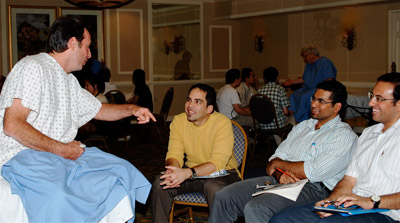Higher Performance Standards for USMLE Step 2 CS Expected to Lower Pass Rates for IMGs

USMLE Step 2 CS More Difficult for IMGs
Beginning in January of this year, the standard performance grade for passing the USMLE Step 2 CS licensing examination has been raised for two of the three exam components. It will now be more difficult to pass the ICE(Integrated Clinical Encounter) and CIS(Communication and Interpersonal Skills) portions of the exam. The standards for passing the SEP(Spoken English Proficiency) component have remained unchanged. This increase in minimal performance standards closely follows the enactment of some significant changes made to the structure and content of the Step 2 CS in June of 2012. Most significant among these changes is the expansion of Communication Skills sub-components which will now require test takers to bring a more “patient centered” approach to their cases. A stronger emphasis will now be placed on the examinee’s ability to explore patient’s concerns, as well as how the medical complaint is impacting daily activities and lifestyle. Eliciting the patient’s input and consensus for making positive health care decisions, and addressing the emotional needs of the patient will now need to be demonstrated as well. These added responsibilities will require an ability to express genuine empathy when appropriate, and comfortably converse with patients while addressing any number of unforeseen challenges written into the cases. Changes to the Patient Note component now require examinees to list supporting history and physical findings for each chosen differential, but the maximum number of possible diagnoses being considered has been reduced from five to three.
While the impact of these cumulative changes to the USMLE Step 2 CS exam are expected to have a minimal effect on the passing rates among U.S. and Canadian test takers, the predictions for foreign and international graduates are not nearly as optimistic. According to their own projections, the USMLE estimates that failure rates for foreign graduates will now have by increased 18% beyond those recorded in the second half of 2012 when the expanded content changes had already taken effect. Unfortunately, since statistics on passing rates for 2012 have not yet been posted by the USMLE, it is difficult to accurately calculate current pass rates. What we can assume is that, although passing rates among foreign graduates reached a four year high of 77% in 2011, the expanded exam content changes initiated last June have already negatively affected rates for 2012. But even if passing rates for IMGs remained at 77% for 2012(which is unlikely), USMLE projections would indicate a current pass rate of 63%. To put this into perspective, it’s reasonable to assume that as many as four in ten foreign graduates are now failing the exam.

Historically, the CIS requirements of the USMLE Step 2 CS examination have presented the most difficulty for foreign medical graduates seeking residencies in the U.S. Many overseas medical schools continue to concentrate almost exclusively on the “medical” aspects of clinical skills training with little or no importance placed on interpersonal communication. These problems, as well as cultural and language differences, have traditionally accounted for the largest percentage of step 2 cs failures among IMGs. To make matters even worse, the instruction provided in the popular preparation books and review sources used by most foreign graduates has, in my opinion, been seriously inadequate even prior to the latest expanded exam requirements. Add to this the recent proliferation of live CS preparation courses which advertise inflated, unsubstantiated pass rates while utilizing instructors and standardized patients with no real background or experience in the field.
Needless to say, it is more important than ever that foreign and international medical graduates not only allow adequate preparation time before taking the USMLE Step 2 CS, but also choose a reputable review source that provides the expertise to help with addressing the latest exam criteria changes. While it would be advisable for test takers to consider a live program which will offer the advantage of supervised practice and individualized feedback, it is also vitally important to investigate the quality of those providing the instruction before selecting a course.
About the Author
Douglas Lieth is founder of Step 2 CS Review, a two day prep course workshop for the USMLE Step 2 CS Exam. Visit www.step2csreview.com for more information.





